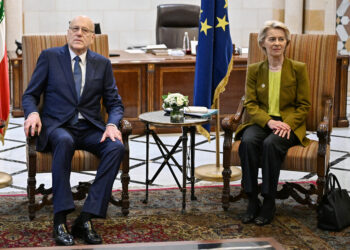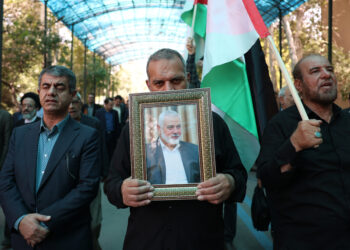Brussels – Syria is still in the grip of a war that has raged for 13 years, Israel is at war with Hamas terrorism, and tensions with Iran are on the rise. In an ever more unstable Middle East, the EU is mobilizing to ensure that the situation does not also escalate in Lebanon, which the 12-star bloc relies on to manage what little ‘normalcy’ remains in the region. But Lebanon is beginning to raise concerns about its resilience. Oliver Várhelyi, commissioner for Enlargement, admits “the difficult situation Lebanon is experiencing domestically, which is further exacerbated by regional tensions.”
At the urging of EU heads of state and government, the Commission has decided to try to shore up the Beirut government with a billion-euro aid package for the 2024-2027 four-year period. The goal is to ensure “Lebanon’s stability and its strong support for Lebanon and the Lebanese people in the context of the current crises,” Várhelyi said. It is a geopolitical priority in a period of geopolitical tensions that continue to worry Europe for the immediate future from an economic perspective and not just that anymore.
Cyprus denounces the increased flow of Syrian asylum seekers arriving on the island via Lebanon. Beirut can no longer keep internally displaced Syrian refugees and IDPs who continue arriving and, therefore, is letting them leave. Between regular arrivals and irregular entries, there are “five times as many migrants in Cyprus as in any other frontline member state,” MEP Costas Mavrides (S&D) denounces in the question on the subject presented to the College.
Ylva Johansson, Commissioner for Home Affairs, acknowledges that the situation is becoming sensitive and recalls that “Frontex is supporting Lebanon through the Commission-funded EU4BorderSecurity program by fostering bilateral and regional cooperation and sharing of best practices in integrated border management.” The EU Coast Guard and Border Guard Agency, “Frontex holds a mandate to negotiate a working arrangement which could contribute to improving border management capacities,” in this case with Lebanon. Work is also being done with Lebanon on the migration issue, another element of political pressure to have a stable Middle East that is strategic.
The EU executive is doing what it can regarding migration flows to Cyprus. “The Commission is in regular contact with the Cypriot authorities and continues, together with EU Agencies, to provide the necessary political, financial, and operational support to Cyprus to address the current challenges in the region,” Johansson added.
English version by the Translation Service of Withub![Mappa politica del Medio Oriente [foto: Wikimedia Commons]](https://staging.eunews.it/wp-content/uploads/2024/08/Map_of_Middle_East-640x375.png)






